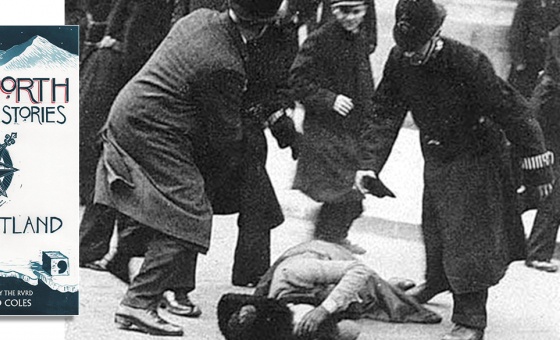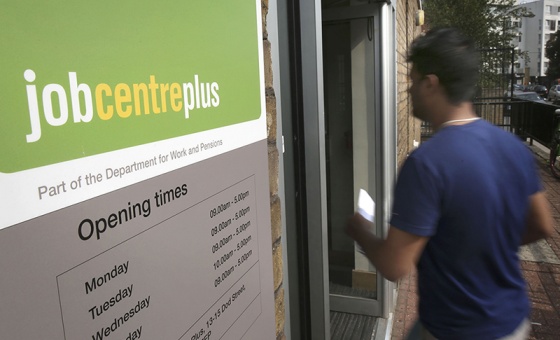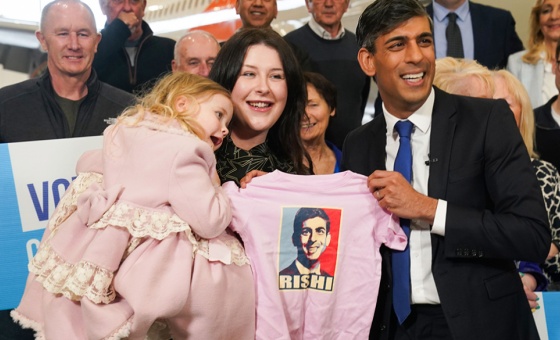This is the last article you can read this month
You can read more article this month
You can read more articles this month
Sorry your limit is up for this month
Reset on:
Please help support the Morning Star by subscribing here
THE polling numbers are close in this final week of the French election, with the far-right candidate Marine Le Pen running just behind the supposed defender of the values of the Republic, Emmanuel Macron.
Much is made in the press about the distinction between the two, but unfortunately what is also apparent is that the distance is shrinking as the neoliberal Macron shifts further to the right while this week attempting to show he is really a man of the people after having spent the campaign proposing proposition after proposition to benefit the wealthy.
Le Pen meanwhile has attempted to keep the focus solidly on the French pouvoir d’achat, power of buying, or cost of living, accusing Macron of both contributing to inflation and being oblivious to its effects.
Macron has presented himself as above the fray of the steadily lowered standard of living of workers, rural French and those on the periphery of the wealthier cities.
Meanwhile, Le Pen’s “concern” (she wants to keep the retirement age at 62 whereas Macron wants to raise it to 65, lower the VAT tax on the rising price of fuel and provide a fund for essential commodity purchase for those at the bottom) is not matched by her overall economic positions which align her even more rigidly than Macron with French corporate interests.
The choice echoes a bit the US where the usual Tweedledum and Tweedledee politics — with a putschist leading one party and a man who draws the world closer to WWIII every time he opens his mouth leading the other — has now simply folded into Tweedle Dumb.
The situation in the country is perilous. In the middle, small businesses are collapsing, with 35 per cent more bankruptcies this year than last and 107,000 bankruptcy procedures instituted, while at the top, France’s lead auto exec, the head of the now merged Peugeot and Fiat-Chrysler, was revealed to have earned €66 million in 2021 — a figure so outrageous that even Macron, who is desperately searching to sway the 73 per cent of the French electorate that believes he does not understand their problems, urged there be a ceiling on executive salaries, not in France, but across Europe.
How did France get to this state? A minor reason is a dediabolisation of the far right, with Le Pen no longer the Devil, but rather portrayed in the media as “a woman free and simple,” happy at home with her cats.
Also important has been the collapse of the left, especially in the first round when it became apparent that the three standard-bearer parties, the Greens, the Socialists and the Communists together were going to poll under 10 per cent yet rather than, at the end of the campaign, shifting their allegiance to the top left candidate, Jean-Luc Melenchon they persisted in validating their own fiefdoms, with one party going so far as to call the vote for it a “useful vote.”
Had they swung their votes, it is extremely possible this round would have been a left/right battle of Melenchon/Macron with Le Pen eliminated.
The primary reason for the rise of the far right, though, is Macron’s policies. He was accused when he finally took to the campaign trail this week of being “the candidate of the 1 per cent.”
He has championed job creation, but neglected to point out that by making it easier to hire and fire, a main “reform” of his term, he has increased precarity and lowered wages.
He has promised to lower taxes on businesses by €7.5 billion and effected budget cuts throughout the system, so that, for example, infant deaths from harmful foods have increased because of the paucity of officials who can verify the products are safe.
As part of this, as one critic put it, “attempt to destroy the French social model,” the French government under Macron has farmed work out to consultant companies including the US McKinsey company which is now charged with paying no taxes on its earnings in France for 10 years. Le Pen calls her opponent Emmanuel Macron McKinsey.
As a result of a move to the right by Macron, who presented himself five years ago as “neither left or right,” he is sometimes at pains to distinguish himself from Le Pen.
On a very dangerous Trump-like issue, Le Pen wants, in the guise of “returning money to the people,” to eliminate the €138 tax the French pay to support public radio and television, the crown jewel of European public media and an often harsh critic of Le Pen. Le Pen then wants to sell off French public media.
Macron, though, has indicated he is also in favour of cancelling the contribution while not going so far as to suggest privatising the media. But with little public funding, that would be a possible next step.
The widespread voter dissatisfaction with established candidates resulted in an abstention rate of 26 per cent, with one poll suggesting abstention could increase to 44 per cent in this upcoming round.
One student at a Sorbonne rally after the first round termed this election “reactionary blackmail,” while another characterised the choice of Macron/Le Pen as being that of “unbridled liberalism or authoritarian nationalism.”
Le Pen’s reactionary immigration and discriminatory policies against minorities will make life unendurable for those populations and could unleash a wave of hatred and violence in the streets, a la Trump.
For that reason especially, cooler heads potentially will prevail and the far right will be beaten back one more time, but this time by a much smaller margin than ever before.
As economic hardships worsen for the majority though under Macron’s next five years, without a collective coming together of the left, the country moves perilously closer to the far-right alternative as a more desperate neoliberalism grasps at any straw to hold onto its profits, including accommodating itself to the most odious elements in society.












